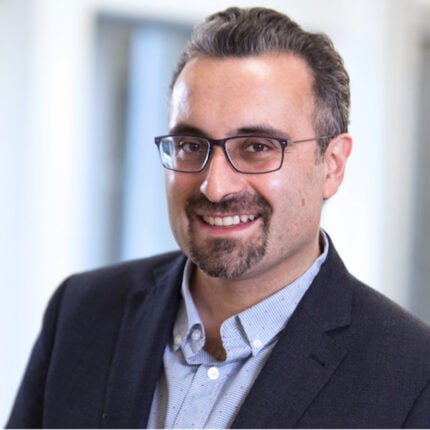We are living in extraordinary times. Like many, I am currently juggling home-schooling my son while working remotely, in my new role as the Director of the Centre for Transforming Access and Student Outcomes in Higher Education (TASO).
I’m one of the fortunate ones. My son’s home-schooling is made far easier because he has access to broadband and a tablet. But, according to the Children’s Commissioner for England, 700,000 students do not. This stark number comes as a recent rapid evidence assessment by the Education Endowment Fund warns that school closures could reverse nearly a decade’s worth of progress towards closing the attainment gap for disadvantaged pupils – unless they receive sustained support to catch up.
This warning has been somewhat tempered by the government’s new £1bn catch-up tutoring fund, which will allocate £350m to supporting the most disadvantaged pupils. However, the higher education sector still needs to take heed if we are serious about improving social mobility, especially as the effects of Covid-19 are likely to be felt for many years to come. We know that prior attainment is a key predictor of further study. If there is one positive to come out of Covid-19, let it be the sharpened focus it has placed on existing inequalities in our education system, and the renewed push towards eliminating them.
Covid-19 is having a disproportionate impact on disadvantaged and minority groups. This is well-documented. It has hit care-experienced and estranged students with limited support networks particularly hard, as outlined by Eluned Parrott. It has exacerbated inequalities for BAME students and communities. And its impact is far from over.
As the sector gears up to reopen in a “new normal”, how will the blended learning experience impact disadvantaged and under-represented groups? Skipping forward further, at the end of their degrees, what will the job market look like for these students? There will be no one-size-fits-all response to these questions. Listening and learning from individual student experiences will be paramount. Equally important will be the use of high-quality evidence to inform decision-making and guide a course of action.
A reason for hope
Before joining TASO, I was director of race equality think tank the Runnymede Trust. After 21 years of advocacy, research and activism to tackle racial inequality – which could often feel like I was banging my head against a brick wall – suddenly, the murder of George Floyd has sparked calls for rapid and much needed change.
Higher education has not been untouched by this groundswell for change. Nor should it be. Anti-racist student protests have swept across the country, and institutional messages of support for the Black Lives Matters movement have filled our social media streams. While I am happy to see this new commitment, as Tahmina Choudhery recently wrote on Wonkhe, words of support must be followed by institutional action.
Although the inequalities in higher education are vast and complex, there are reasons to be optimistic. The sector is already investing in understanding what works to eliminate equality gaps. As Covid-19 barriers to progress stack up, now is not the time to deviate from agreed plans and ambitions.
The sector has come a long way since my time on the 2015 Universities UK Social Mobility Action Group. As a part of this group, I recommended the establishment of TASO to help facilitate knowledge sharing and best practice approaches to improving equality in higher education.
Over the coming years, TASO’s work will be vital to answering the stubborn questions now at the forefront of public debate. What works when it comes to reducing the BAME attainment gap? How can we best support care-experienced young people to access and succeed in higher education?
The importance of impact
Tough times call for more accountability in delivering and demonstrating outcomes. As senior leaders grapple with enormous challenges, in the face of budget cuts, job losses and student demands, evidence of the impact of widening participation and student success activities will be more important than ever. And there currently just isn’t enough of it.
TASO has recently published an online toolkit summarising the existing evidence base on effective approaches to widening participation and student success. The evidence reveals that many approaches produce a modest positive effect on individuals’ understanding and attitudes. But there is a dearth of evidence on the impact on actual behaviour, such as enrolment rates. This means we only have part of the picture of what works to improve equality in higher education.
TASO is responsible for generating evidence to complete this picture. Our current and planned research projects will provide more evidence on the effectiveness of multi-intervention outreach schemes, summer schools and approaches to addressing continuation and attainment gaps for BAME students.
TASO is also working to upskill the sector on best-practice evaluation. We have recently released a step-by-step guide to evaluation. The guide promotes an impact-driven evaluation approach, interlaced with process evaluation, to determine which activities are most effective in transforming access and student outcomes. When push comes to shove, we want universities to be equipped with the evidence and expertise to show the real impact of their work.
This is an historic moment. We are living, working, and learning differently. We are socially distant yet, in many ways, more united. We must not let Covid-19 derail our efforts to eliminate equality gaps, but rather harness the moment to bring about transformational change.












